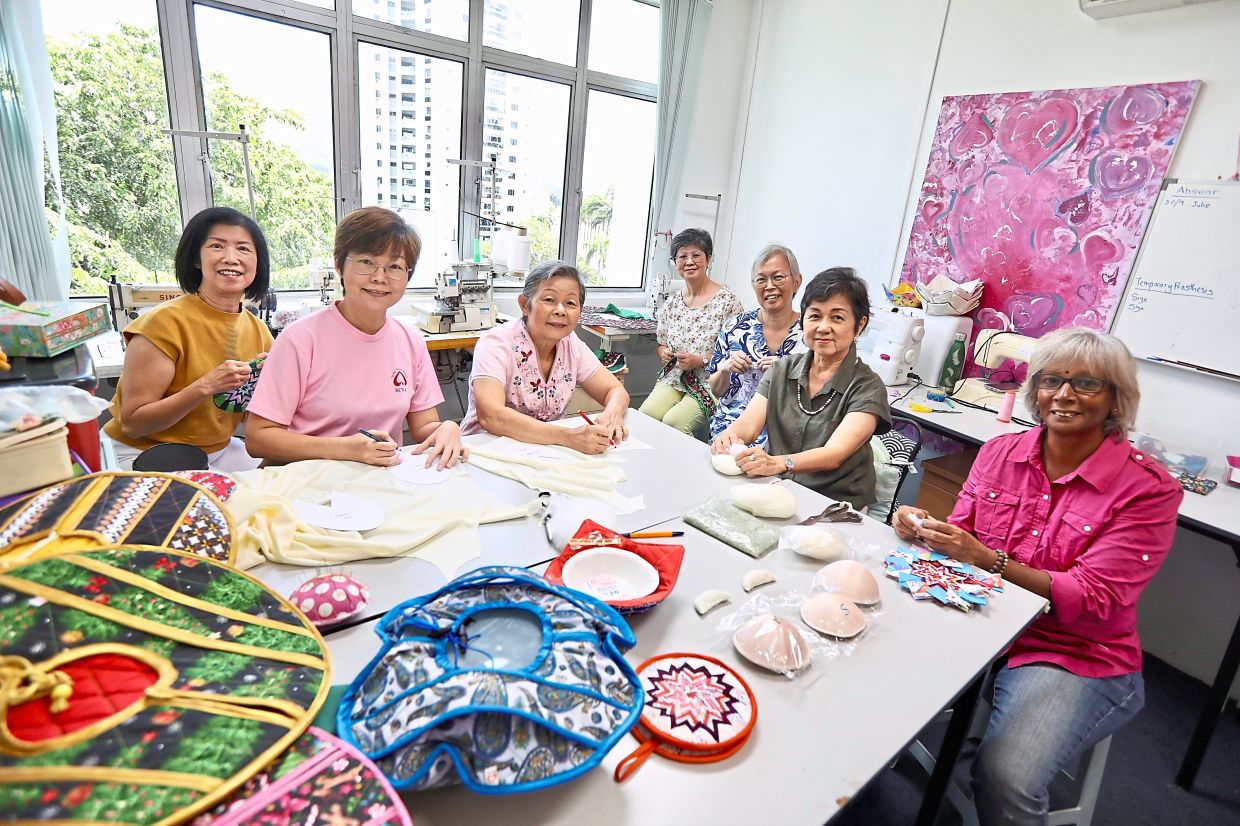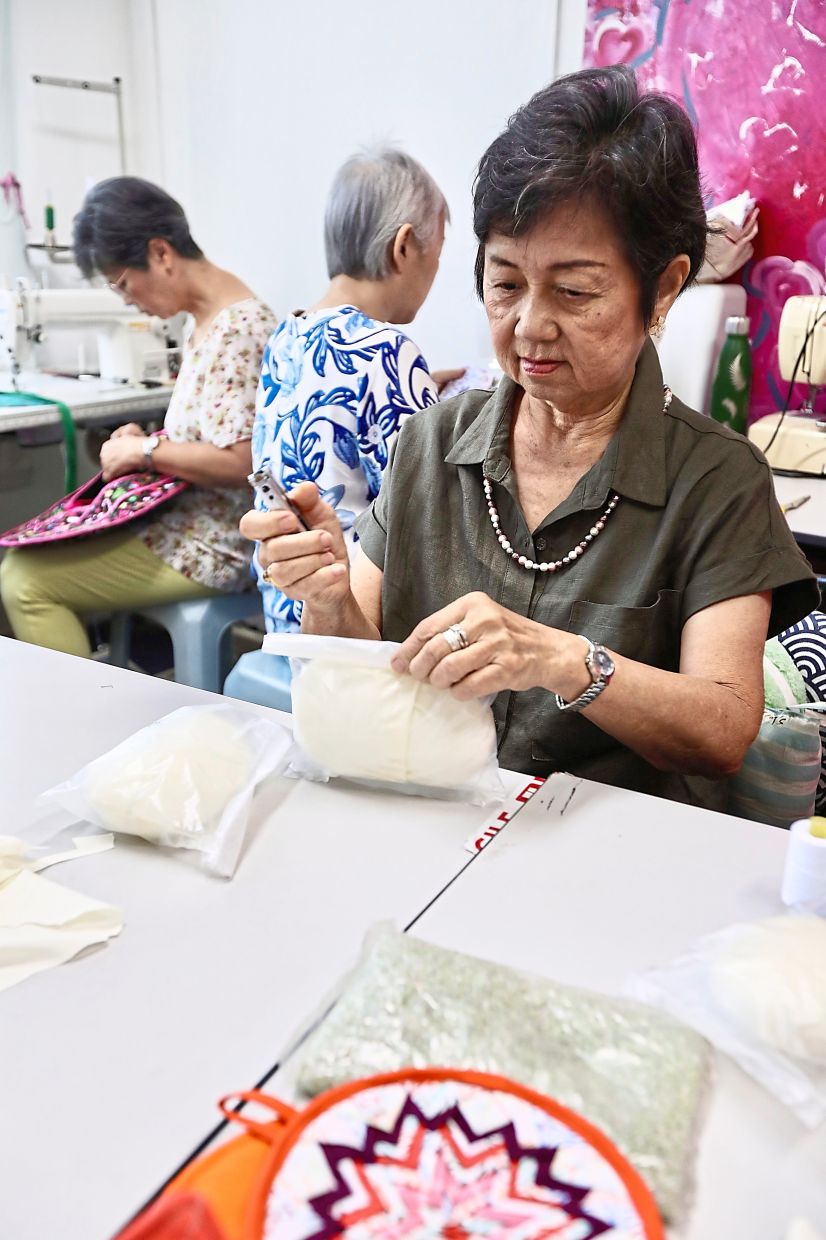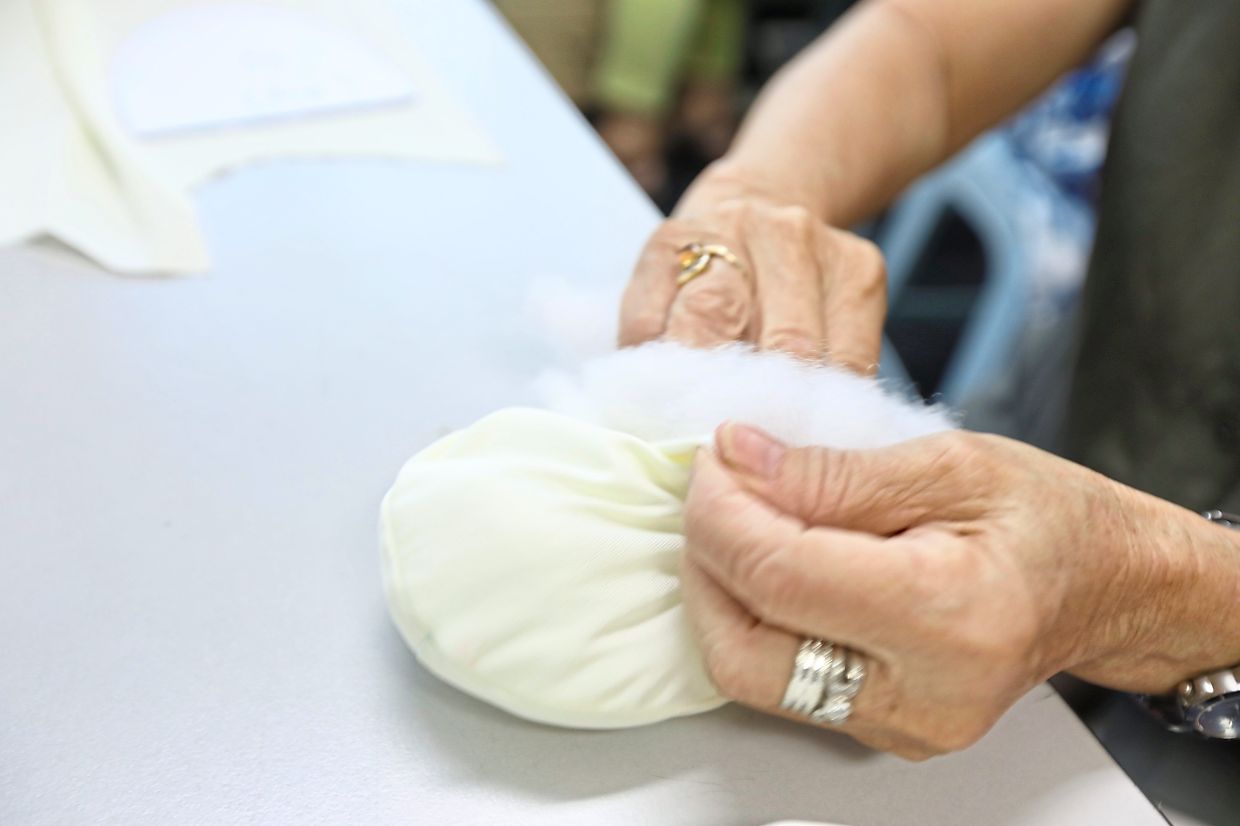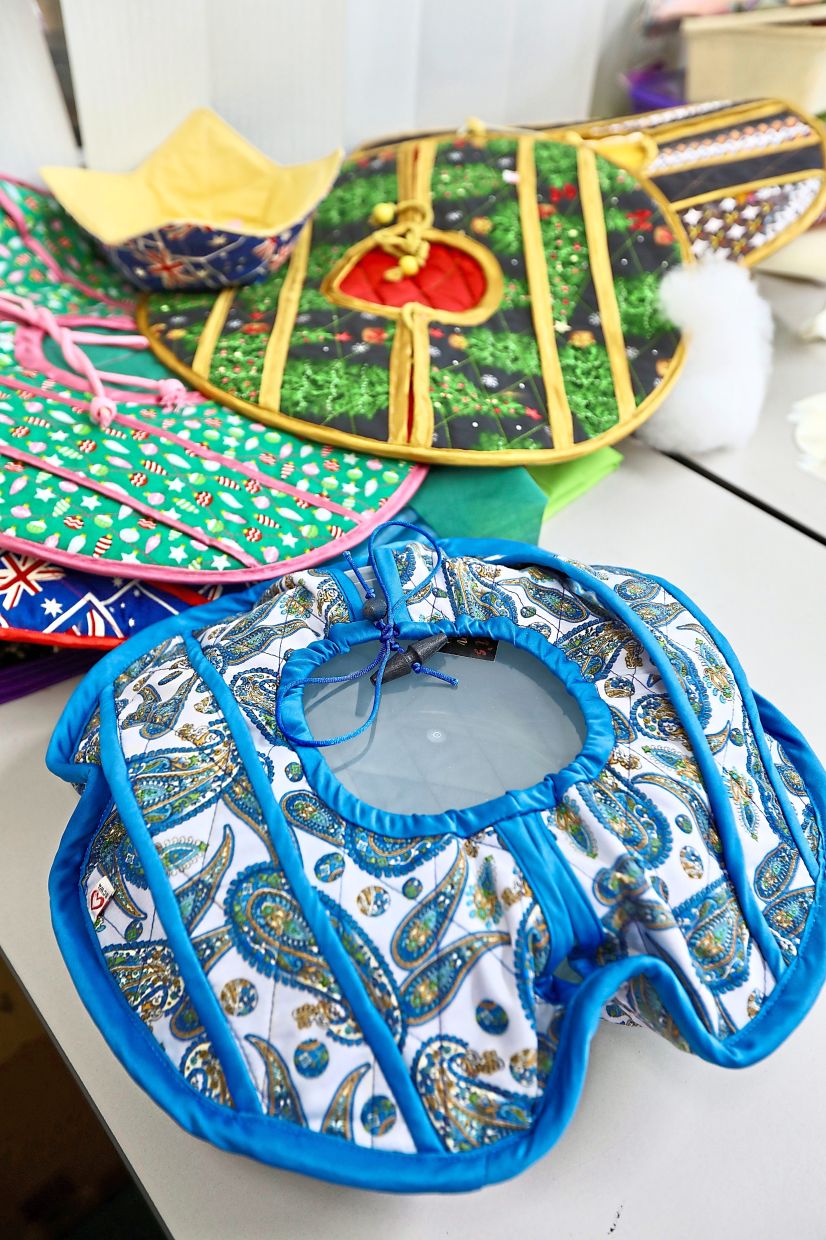The Thimble Thumbs team (from left): Grace Phua, Julie Law, Tham Lai Chee, Ang, Tiong, Tam and Sanbagavalli gather weekly to make breast prostheses for women newly diagnosed with breast cancer. Photos: The Star/Low Lay Phon
Every Monday morning, a group of seven breast cancer survivors meet to create handmade breast prostheses for women who have been recently diagnosed with the disease.
Also known as Thimble Thumbs, the group’s effort hopes to encourage new patients and show them that life goes on after breast cancer diagnosis.
“There is meaningful life after breast cancer and our group aims to show that to new patients,” says Tammy Tam, 75, the oldest of the group.
The women, who meet at the Breast Cancer Welfare Association (BCWA) building in Kuala Lumpur, places a lot of care on how the breast prostheses are made for their peers, ensuring that the end product is both comfortable and sustainable for their future owners to use.
For breast cancer survivor Sanbagavalli Subramaniam, the prostheses “help provide balance for the body after surgery.”
“They are not just made for aesthetics; they help women who have had mastectomies feel more confident and secure about themselves, especially when they go out,” she adds.
Making the breast prostheses is a fairly simple task and each member of the team is given a specific role on what to do.
The measurement for a prosthesis is first written on a piece of fabric before it is cut into shape. Then, the fabric is added with stuffing before it is shaped and sewn shut, using a sewing machine.
“Each prosthesis takes about 30 minutes to make, from start to finish,” Sanbagavalli says.
These temporary prostheses are then given for free to patients when the BCWA conducts hospital visits to women who have had breast surgeries.
Eventual necessity
Also known as Sam among her friends, she says new patients frequently assume that a breast prosthesis is unnecessary, but eventually, they understand its importance because it impacts how they feel.
Aside from its specialty in making temporary prostheses, the group is also skilled at creating a variety of knick-knacks such as microwave pot holders for casseroles.
The materials required to make these products are either purchased at an affordable price or are unused cloths. Occasionally, they are sold in events hosted by other non-governmental organisations. “We showcased our products at the Latin Women’s Association Malaysia recently,” Sam says. “It was our way of reaching out to more people.”
Founded in 1986, BCWA was created to support women with breast cancer. “We wanted to teach women how self-breast examinations are conducted,” says representative Sumitra Selvaraj.
Soon, the idea of peer support group came about. “It was a way to empower survivors, so they know that their feelings are valid and their concerns are heard by people who are in the same shoes,” Sumitra continues.
“And Thimble Thumbs offers that kind of support.”
Stronger together
While Thimble Thumbs gives women who are new to breast cancer a sense of hope and purpose with its prostheses, the group has also given its existing members a profound sense of kinship, which is crucial for their journey.
A 2011 study published in the Journal of Research in Medical Sciences found improvement of a breast cancer survivor’s quality of life when they attend peer support groups. There’s “significant improvement in body pain, mental health and physical health,” the study stated.
Tiong Wai Yin, 57, who was first diagnosed in 2013, could still recall how lonely and isolated she felt during her early journey with breast cancer.
“I was the only one in my circle of friends who have cancer; my family had no history of it too, so it was hard,” the housewife says.
Tiong, who had two sons under the age of 12 at that time, remembered how she closed herself from the outside world. She was scared if her illness would impact how others viewed her family.
In 2017, after her breast cancer relapsed, she was introduced to Thimble Thumbs. “My doctor told me about this association and how they help women with breast cancer and that is how I find myself here today,” she adds.
Despite going through treatment to this day, Tiong now views life in a more positive light with the help of her sewing friends.
“Their support has helped me tremendously,” she adds. “Both my sons are in university now so I have more time to focus on myself, and I can find my own life fulfilment with my friends,” she says.Same sentiment
Other members also share the same sentiment. Retired financier Molly Ang was 59 when she was diagnosed with breast cancer in 2020.
“It happened during the early stages of the Covid-19 pandemic,” she recalls. “It came as a shock to me because it was completely unexpected. I kept to myself for awhile after that,” she adds.
The never-ending support she received from her family, friends and her peers at the BCWA while undergoing cancer treatment, Ang says, gives her the strength to continue forward in life.
Today at 63, Ang feels thankful to have a second chance at life, and adds she’s taking it at a slower pace, feeling more relaxed and at ease as the days go by.
“I still don’t know why I went through that experience, but I would like to think that God had put me through that for a reason,” she says.
Although the experience of going through breast cancer is gruelling, the women of Thimble Thumbs prefer to focus on the positive side of life, choosing to live life with compassion and sensitivity.
Despite being breast cancer survivors, they often wish that people would not walk on eggshells around them, especially concerning their condition.
“I don’t want people to look at me with pity,” Sam says. “I wish someone would listen about my journey with breast cancer instead.”
Participating in sports is one of the activities done by some of them to keep themselves healthy and occupied. “My friend Tham Lai Chee and I often enrol in dragon boat races and we also go for bowling games; they both help strengthen our arms,” she says.
The team chooses to be grateful for what they have in life because it gives them a reason to be positive. “I am grateful for each day,” Sam continues. “I wake up and I am thankful for another day because I get to spend time with my family and friends,” she concludes.
Spreading awareness (sidebar)
Breast Cancer Awareness Month is a worldwide campaign held every October to inculcate understanding and compassion towards breast cancer and those diagnosed with it.
According to the Health Ministry, breast cancer is the most common form of cancer affecting women in Malaysia and about one in 19 women is at risk.
Known as Pink October, a pink ribbon is used as the campaign’s symbol.
Some of the ways to educate the public about this cause include teaching the risk factors of breast cancer and encouraging them to go for regular breast cancer screening.










